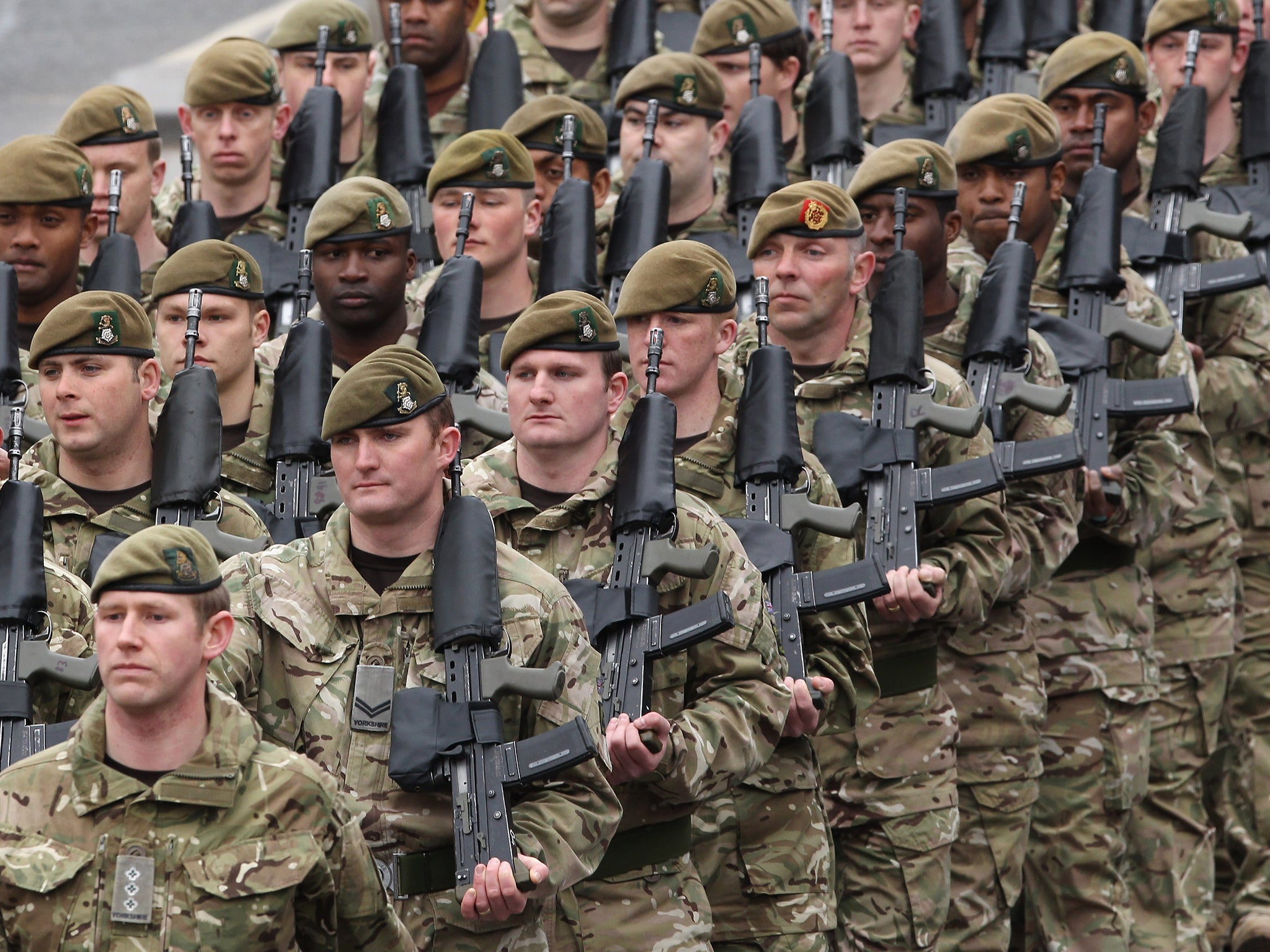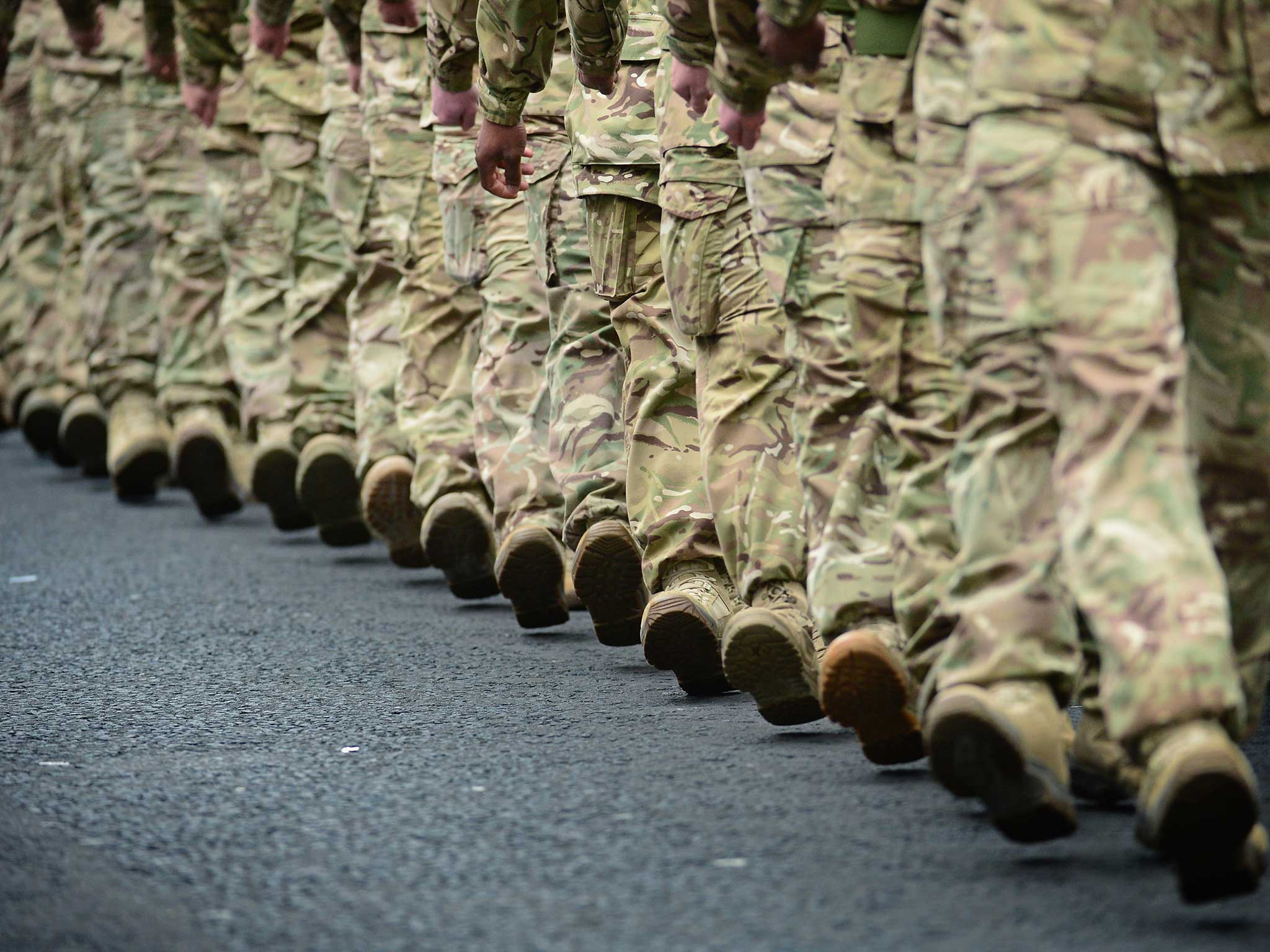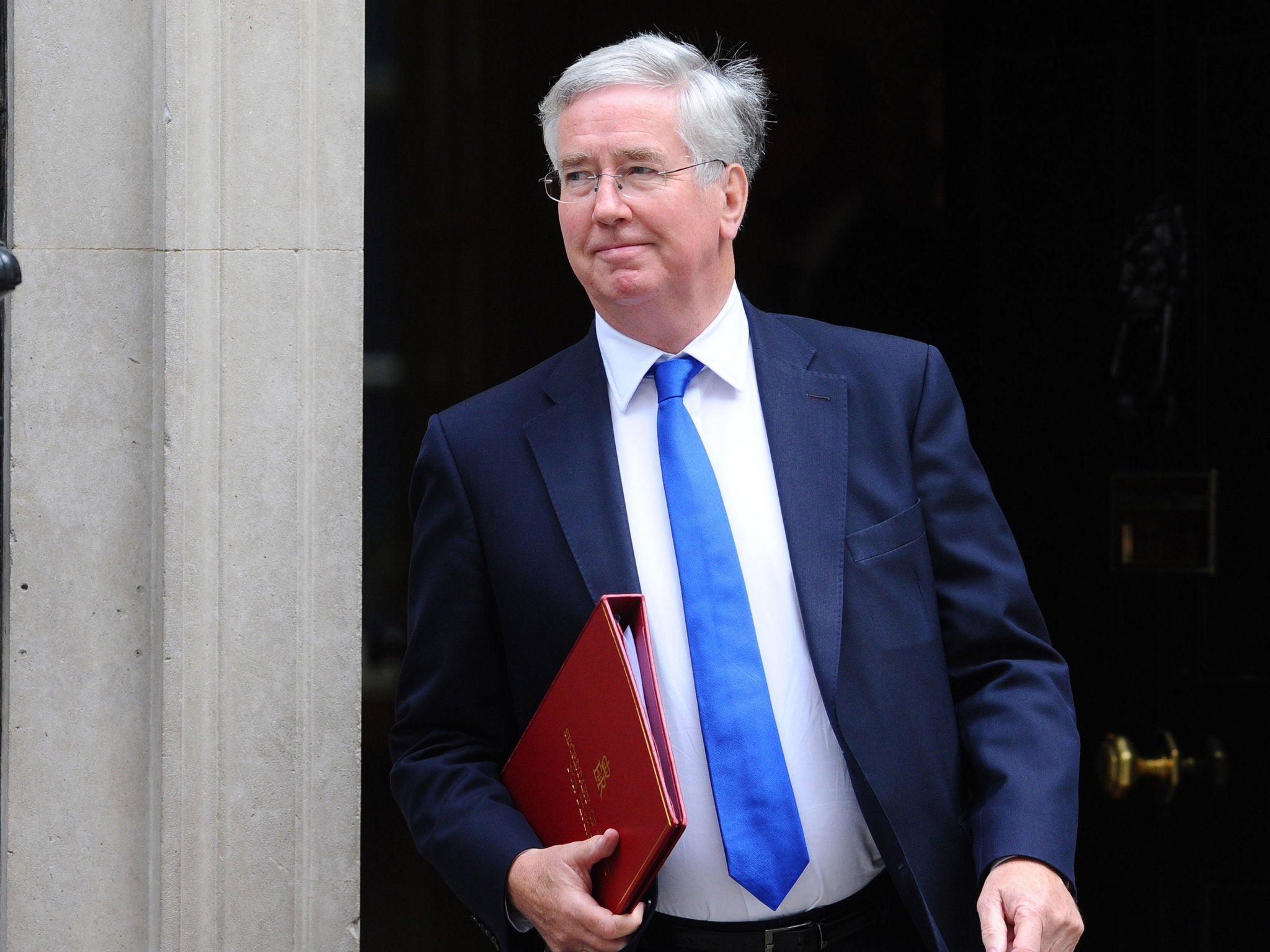The British Army isn't large enough to halt refugees, let alone take on Vladimir Putin
Diplomatic Channels: Low morale due to relentless defence cuts has resulted in so many leaving the Army that Britain is now 3,400 soldiers short of its reduced target strength


Your support helps us to tell the story
From reproductive rights to climate change to Big Tech, The Independent is on the ground when the story is developing. Whether it's investigating the financials of Elon Musk's pro-Trump PAC or producing our latest documentary, 'The A Word', which shines a light on the American women fighting for reproductive rights, we know how important it is to parse out the facts from the messaging.
At such a critical moment in US history, we need reporters on the ground. Your donation allows us to keep sending journalists to speak to both sides of the story.
The Independent is trusted by Americans across the entire political spectrum. And unlike many other quality news outlets, we choose not to lock Americans out of our reporting and analysis with paywalls. We believe quality journalism should be available to everyone, paid for by those who can afford it.
Your support makes all the difference.The British Army should be used to stop the invasion by migrants from Calais, comes the cry from MPs. David Cameron has threatened, yet again, to smite terrorists by carrying out military air strikes on Syria and Libya.
There seems to be no end to florid rhetoric and sabre rattling at the moment, often to the bemusement and amusement of senior commanders. One of them guffawed when reminded that the Defence Secretary Michael Fallon has declared that we were facing a “new Battle of Britain” in confronting Isis.
Apart from the fanciful comparison between the respective threats faced from Adolf Hitler then and from Abu Bakr al-Baghdadi now, it is worth remembering that during the Second World War Britain was frantically producing Spitfires and Hurricanes to counter the Luftwaffe while the RAF is now losing entire squadrons to defence cuts.

Low morale due to these relentless defence cuts has resulted in so many having left the Army that Britain is now 3,400 soldiers short of its reduced target strength, and this has happened three years before schedule. More than 20,000 have left in the last five years; plans to make up the numbers with reservists have failed so far.
Meanwhile, allied states are now being asked by the Royal Navy to help out because of a severe manpower shortage. Some personnel from the US Coastguard are already over here working on ships. Others are due to come from Canada, Australia and New Zealand. Hundreds are likely to be loaned from abroad for British ships over the next decade.
This, however, should not be seen as too much of a problem. Britain has long depended on foreigners to fight for this country. The Surrey Police and Crime Commissioner Kevin Hurley has demanded that the Gurkhas be used stop the Calais migrants getting into the country. It will be a change for the warriors from Nepal after serving in wars, most recently, in Iraq and Afghanistan.
The Navy is also holding talks with the French to help out with the current shortage. The French have served on British vessels in the past, including at Trafalgar. There were, in fact, 22 different nationalities on Nelson’s flagship, Victory, during the battle including those from America, Prussia, Sweden, Norway, Russia, Malta, Spain, Italy, Ireland, West Indies, the Indian sub-continent and sub-Saharan Africa. The Army, with a projected strength of under 82,000, is now the smallest since the Napoleonic wars at a time the world, as Mr Cameron and his ministers repeatedly tell us, is becoming a very dangerous place. At the same time, capabilities have been slashed with the loss of maritime patrol aircraft and a reduction in the numbers of fighter jets, tanks and warships.
It is true that the Government has pledged to maintain UK defence spending at 2 per cent of GDP, the minimum level of commitment Nato wants from member states. This, and a joint security fund shared between the security and intelligence services, will be achieved by moving spending from other departments into the defence budget, a scenario that Julian Lewis, the Tory chairman of the Commons Defence Select Committee, has described as a “financial sleight of hand”.
Defence, however, will certainly get a significant boost in funding and the military chiefs are happy with that. The Strategic Defence and Security Review coming in the autumn is meant to be the tool to carry out an on objective assessment of what lies ahead and formulate the appropriate response.
But there appears to be a major disconnect between the attitude of the Government and the commanders on some of the most pressing issues.
The military chiefs caution against exaggerating the threat from jihadists. They warn against blundering into military action in Libya. They stress the need to stand up to President Vladimir Putin, but also to try to de-escalate tensions and the need not to provoke Russia. They point out there cannot be a military solution to the migrant crisis and that one should not treat the refugees as enemy combatants.
The Prime Minister, meanwhile, speaks of “swarms” of migrants from whom the UK must be protected. He threatens immediate air strikes on “Libya, or Syria or elsewhere”, if “there is a specific threat to British people”. Mr Cameron’s use of such demeaning language about people who are desperate and dispossessed has been rightly condemned by human rights groups and others. Questions need to be asked about his warnings of military action. How exactly would he “neutralise the threat”, as he put it, with bombs? Who exactly would he zap in Libya? Would he authorise strikes in Syria without consulting Parliament? A higher number of terror plots targeting Britain are hatched in Pakistan than Libya – would he want air strikes there?

When some senior officers raised doubts over air strikes on Libya three years ago, Mr Cameron declared: “I tell you what. You do the fighting and I’ll do the talking”.
What is happening in Libya now is the consequence of that military action and the subsequent failure of the West to stay the course and help create stability in the country. The danger is that the Government may talk itself into another war with Britain’s armed forces still adjusting to the damage caused by the last round of cuts and also unconvinced that the military option is the right option.
Join our commenting forum
Join thought-provoking conversations, follow other Independent readers and see their replies
Comments